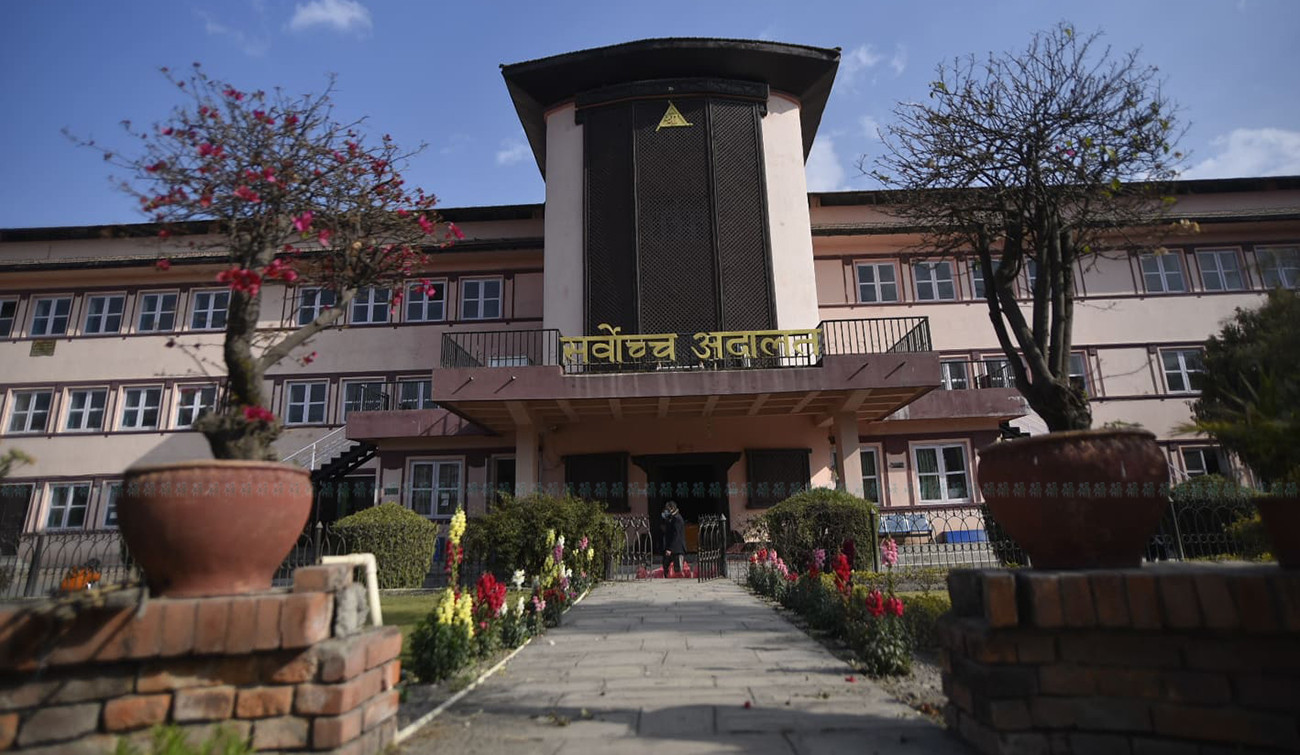The Supreme Court (SC) has explained what the term ‘the father cannot be traced’ constitutes while providing citizenship certificate.
A joint bench of Justices Anil Kumar Sinha and Nahakul Subedi has explained so in its verdict in the writ petition filed by Kristina Maharjan, daughter of Bindiya Maharjan of Mahalaxmi Municipality 6.
Kristina’s biological father had abandoned Bindiya when she was pregnant with Kristina for three months. Bindiya gave birth to Kristina and raised the daughter on her own at her parental home. Bindiya then married another man while Kristina stayed with the parents of Bindiya.
Kristina moved the SC demanding she be granted citizenship on the basis of her mother’s identity alone when the Lalitpur District Administration Office asked her to go to the district of her biological father when she submitted a copy of the citizenship of the biological father.
“A person who is born in Nepal to a woman who is a citizen of Nepal and has resided in Nepal and whose father is not traced shall be provided with the citizenship of Nepal by descent,” states Article 11(5) of the Constitution.
This means that a person can get citizenship from the identity of mother if the mother is a Nepali citizen, the person should have be Nepal-born and staying in Nepal, and identity of the father cannot be traced
The full text of the SC’s verdict delivered on August 8, that has been published recently, has explained what ‘the father cannot be traced’ means.
It has ruled that if the person does not have physical and emotional relation with the father, the father can be deemed to be untraceable.
It has also clarified that the person applying for citizenship with identity of the mother will reserve all the rights to determine whether the father can be traced or not.
It has added that the father should be deemed untraceable if the biological father or the father’s family refuses to identify the person to be the father’s biological child.

